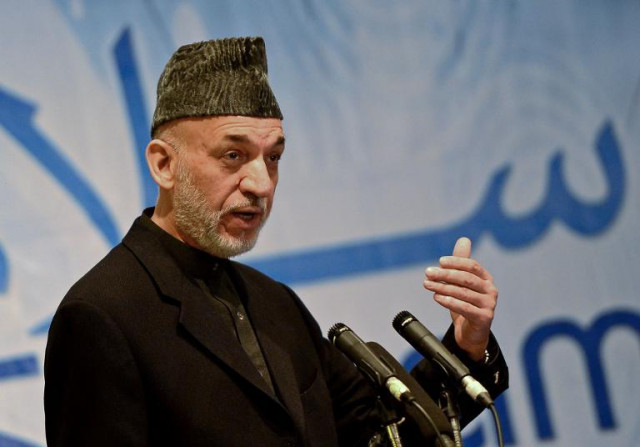China’s interest in Afghanistan could bode well for both countries
Investment by Beijing may boost Afghan economy and bring stability to the region.

Last week, China appointed an experienced diplomat as the country’s special envoy to Kabul. The withdrawal of Nato troops from Afghanistan in a few months presents a compelling opportunity for deeper strategic cooperation between the two nations.
Sun Yuxi, who served as Chinese ambassador to Afghanistan from 2002 to 2004, visited Kabul just days after his appointment. He assured President Hamid Karzai that his country wants to play a greater role in Afghanistan. He also announced China’s support for the Afghan-led peace process, said a statement issued from Karzai’s office on Tuesday.
Pakistani and Afghan political analysts believe China’s growing interest will boost economic ties and promote peace and stability in Afghanistan.
Senate Defence Committee Chairman Senator Mushahid Hussain says China, of all countries, probably has the most credibility and capability to promote peace, security and stability in Afghanistan.
“Unlike Russia or the United States, China carries no historical ‘baggage’ and unlike Pakistan, Iran, Turkey or the Central Asian Republics, it has stayed away from all previous conflicts or civil wars in Afghanistan. Therefore, it is not tainted in any way as far as the Afghan people are concerned and unlike the increasingly bankrupt West, China has the financial resources to sponsor much needed investment in key sectors of Afghanistan,” Mushahid told The Express Tribune on Friday.

He says China has a pivotal role to play in Afghanistan and it seems that the new leadership, under President Xi Jinping, feels a strategic stake in the country’s peace and stability, given its proximity to the Central Asian Economic Belt, the Pakistan-China Economic Corridor and Xinjiang province – all areas given great priority by Beijing.
As the problem of insecurity could emerge as a big challenge in post-Nato Afghanistan, the country’s political circles believe that China can influence Pakistan and play an effective role in bringing lasting peace.
“China wants to come in and put her influence on Pakistan to work for peace as continuing instability in Afghanistan will be harmful to China,” says Dr Farouq Azam, a former Afghan minister.
Azam, who leads the Movement for Peaceful Transformation of Afghanistan, recognises that Beijing desires a bigger role in the country. He says China understands the West is going to leave Afghanistan with well-established extremist networks in place that will destabilise China’s Muslim minority in future. Senior Chinese officials have time and again emphasised the importance of peace in Afghanistan for the internal stability of China’s western province of Xinjiang.
China’s neutral stance towards conflicts in Afghanistan means the Taliban are not bothered by its involvement in the region.
“We have no problems with China as it has never interfered in Afghanistan. The Chinese will be safe,” said Taliban spokesman Zabihullah Mujahid in reply to emails.
Mujahid adds that since China has not been militarily involved in Afghanistan and is only focused on economic and trade relations, the Taliban will not harm its projects.
However, while China sees opportunities for investment in Afghanistan, it is becoming increasingly apparent that its foreign policy towards the country is being driven more by security concerns.
Beijing now has genuine concerns as fleeing members of the East Turkestan Islamic Movement (ETIM) could cross the border into Afghanistan as the result of a major offensive in the North Waziristan tribal region.
Afghans would like to see China motivate Pakistan to help create peace in the region.
President Karzai said in his meeting with the Chinese special envoy that Beijing can play an important role in the Afghan peace process as it maintains good relations with both Kabul and Islamabad.
For Afghanistan, it is also very important to maintain close economic relations with China as the latter is the second largest economic power in the world. Afghan economic experts are of the opinion that investment by the Chinese and their assistance in the extraction of underground mines will not only help the economy, but also boost regional cooperation.
Published in The Express Tribune, July 26th, 2014.



















COMMENTS
Comments are moderated and generally will be posted if they are on-topic and not abusive.
For more information, please see our Comments FAQ